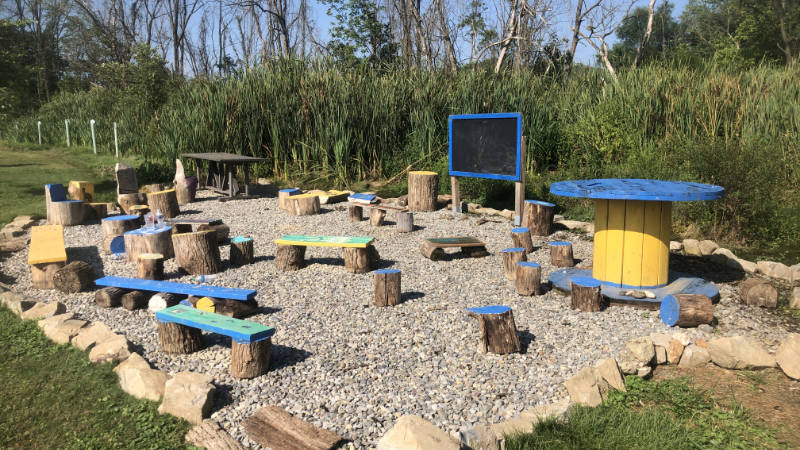Please be sure to check the event organizer’s website for any last-minute changes or cancellations prior to attending.
Have an event that will fit well on our calendar?

- This event has passed.
Outdoor Learning Space Design Workshop

When: Thursday, June 20, 2024, 9 a.m. to 3:30 p.m.
Where: The morning session and lunch will be at Stroud Water Research Center. The afternoon session will be a tour of nearby school sites with outdoor learning spaces.
Audience: Formal educators (classroom teachers, administrators, etc.) and non-formal educators (naturalists, environmental educators, conservation districts, etc.).
Act 48: Up to 6 hours.
Cost: FREE, including lunch.
Register Now
Come learn how to create an outdoor learning space where meaningful learning can happen while also benefiting water quality and wildlife habitat!
In the morning of this workshop, you will learn the basics of how to get started creating an outdoor learning space through these three sessions:
Best Practices for Outdoor Learning and Lessons: Tour the Stroud Center Education Department’s outdoor learning spaces to learn about best practices for teaching watershed education outdoors and receive example lessons that implement the Meaningful Watershed Educational Experiences framework.
Water Conservation: With a native plant expert from the White Clay Wild and Scenic River Program, we’ll walk the grounds of the Stroud Center’s campus and learn about conservation practices like rain gardens, permeable pavement, rain chains, and pollinator-friendly native plants that you can include on school grounds.
Getting Started: We’ll share tips for designing and getting to know your own schoolyard through planograms, Model My Watershed, and a schoolyard report card, as well as guidance on how to formalize your idea for a space at your school and gain buy-in from staff and administrators.
After the provided lunch, we’ll hop on a bus to tour several local and model school grounds, hearing directly from participating teachers (elementary to high school level) on their process and collaborative approach at all phases, from design and building, to lesson creation. Presenters will share tips on how to get started, funding outlets, lesson ideas, design tools, and successful ways of communicating with key staff in the district.
Learning Objectives
Participants will receive information about tools and resources available for outdoor learning space design and implementation.
Participants will learn about a successful model of increasing equitable access to meaningful outdoor learning spaces for teachers and their K–12 students through the design and access of these spaces.
Jump on in and join us! Questions? Please email the workshop co-instructor, Tara Muenz.
Presented in Partnership With
Details
- Date: June 20, 2024
-
Time:
9:00 am - 3:30 pm
- Event Category: Workshop
- Website: https://stroudcenter.org/event/outdoor-learning-space-design-workshop/


